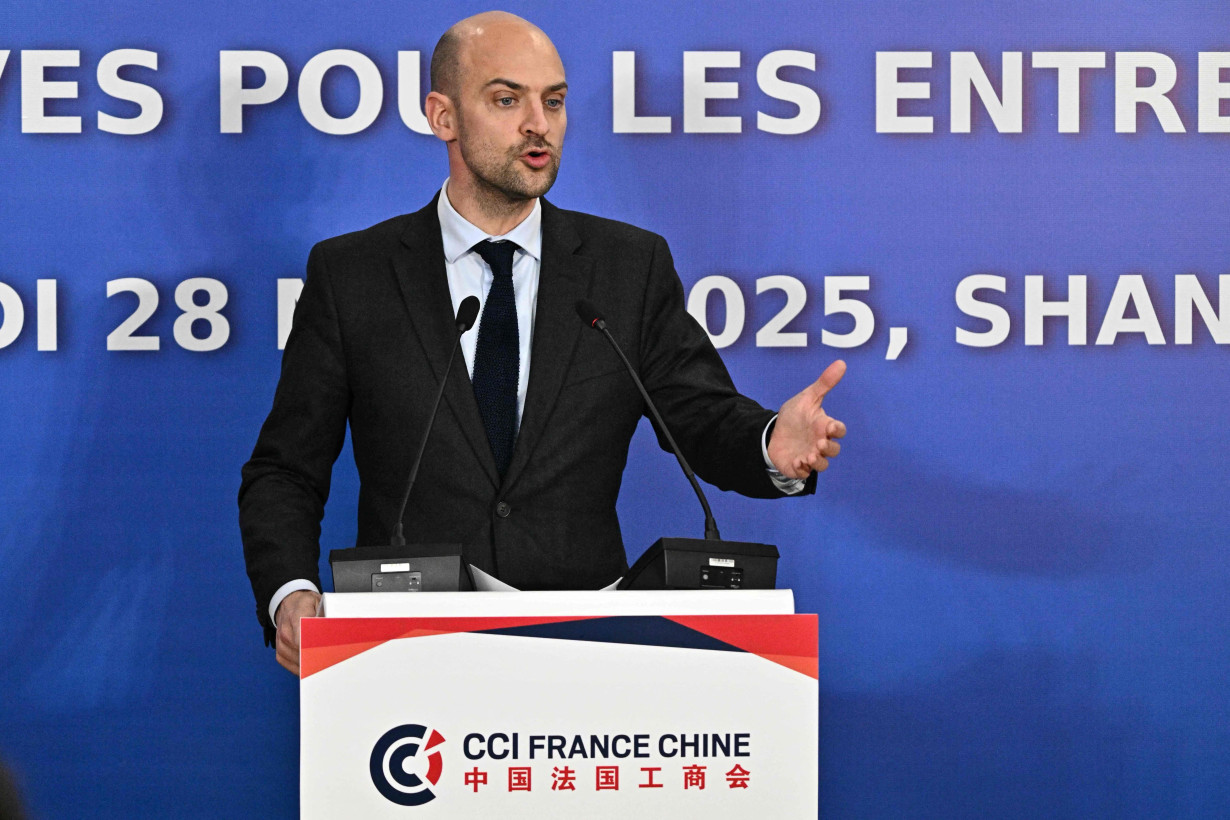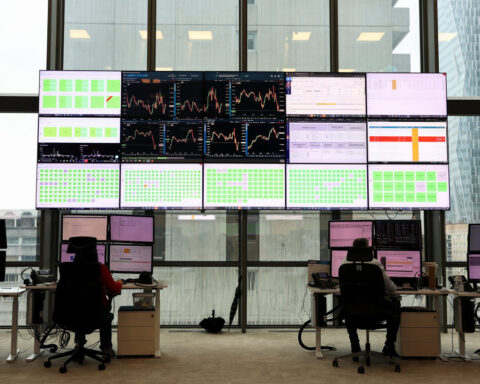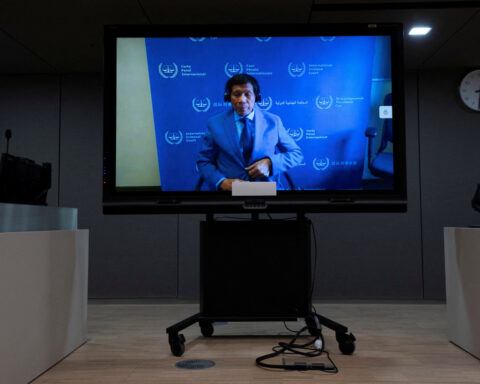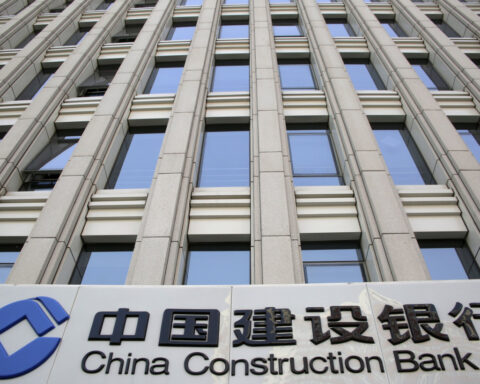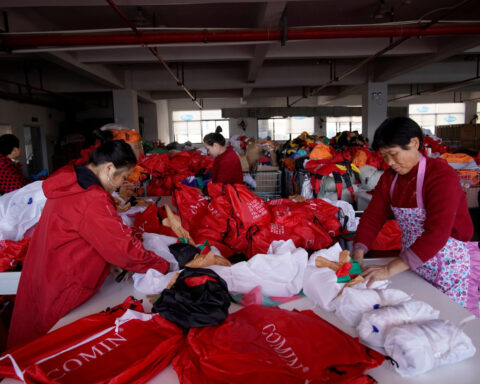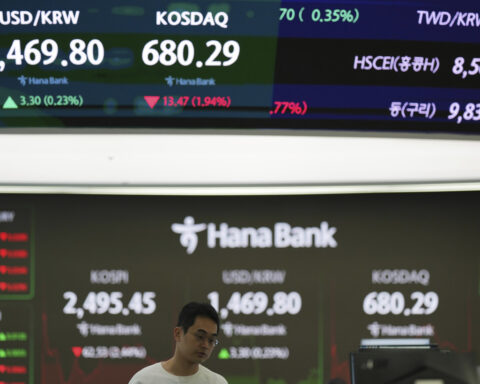By Liz Lee and Shi Bu
BEIJING (Reuters) -China and France will hold three high-level dialogues on strategic, economic, financial and cultural issues this year, Foreign Minister Wang Yi said after meeting with his French counterpart in Beijing on Thursday.
In a meeting Wang described as "constructive" and which included discussions on bilateral and China-EU relations, he said both countries will also put to use the consultation mechanism between foreign ministries for in-depth communication on common issues.
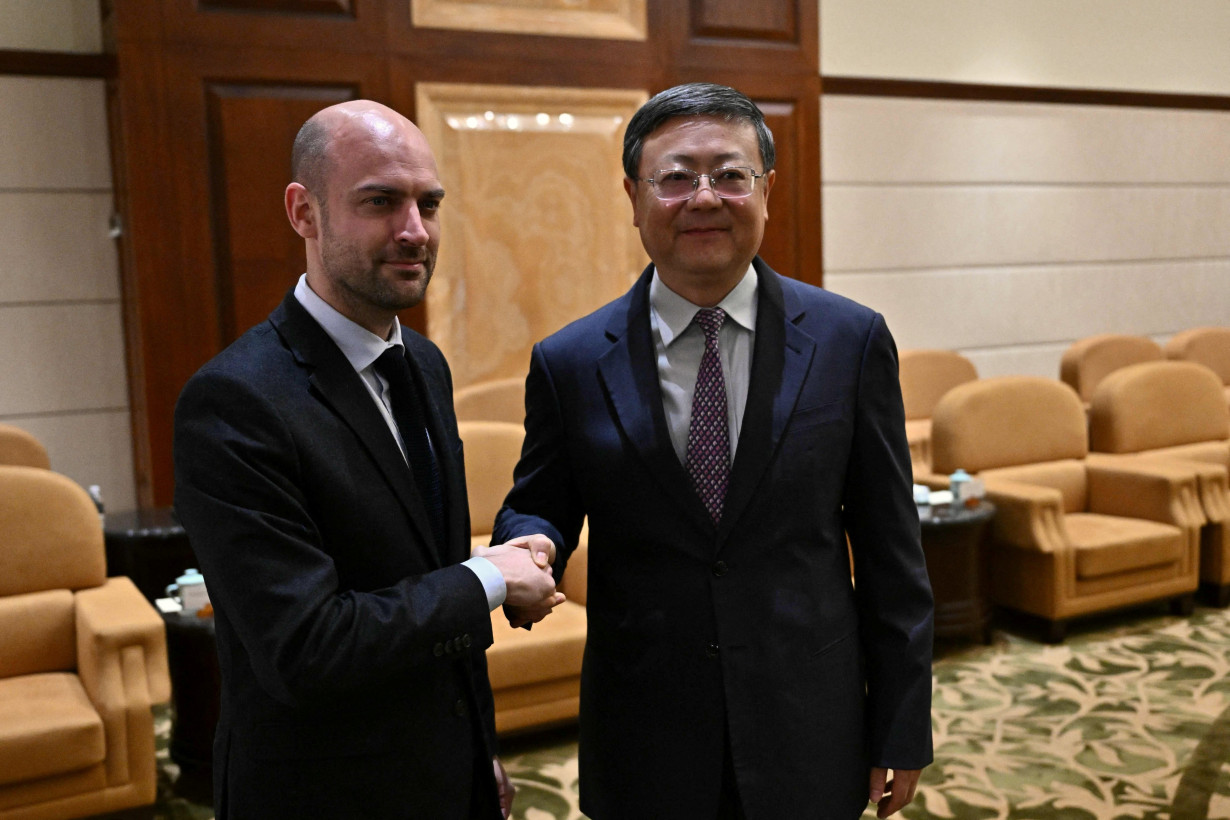
Wang met French Foreign Minister Jean-Noel Barrot on Thursday morning at Beijing's Diaoyutai State Guesthouse. Barrot is in China on a two-day visit that ends on Friday.
The meeting comes as U.S. President Donald Trump upends global trade by imposing, or threatening to impose, tariffs on trading partners including the European Union and China.
"In the face of profound changes in the international landscape, both sides should, as comprehensive strategic partners, demonstrate historical awareness, uphold multilateralism, oppose unilateralism," Wang told reporters after the meeting.
He said both nations are building on their common understandings. "We are not yet done. We will continue to further strengthen our strategic coordination on international and regional hot spot issues."
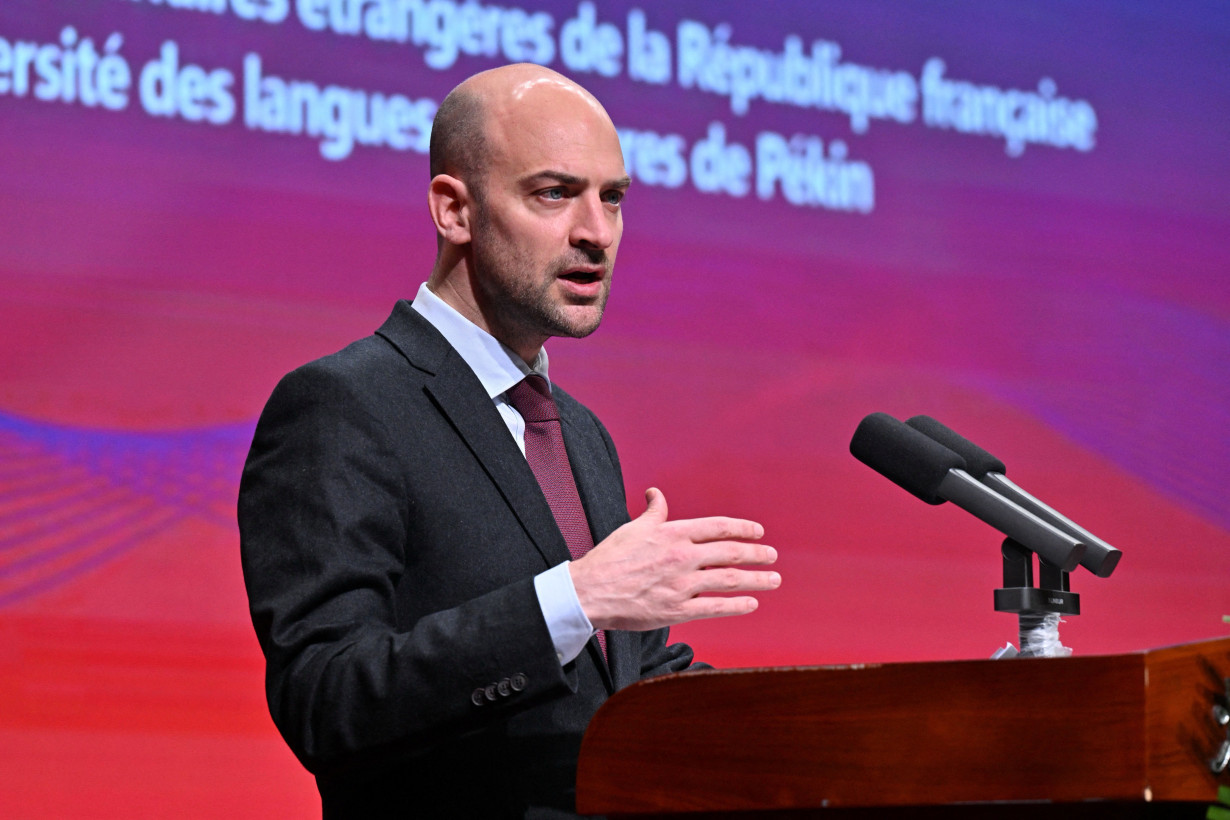
EXPLORING INNOVATIVE INDUSTRIES
Both sides agreed to deepen cooperation in agriculture, nuclear energy, aviation and aerospace, while exploring innovative industries such as artificial intelligence, digital economy, intelligent connected vehicles, green hydrogen and biomanufacturing, Wang said.
"We will also encourage more capable and willing Chinese enterprises to invest and do business in France," he said.
Wang skirted the trade dispute between both countries but Barrot emphasised the need to seek a resolution.
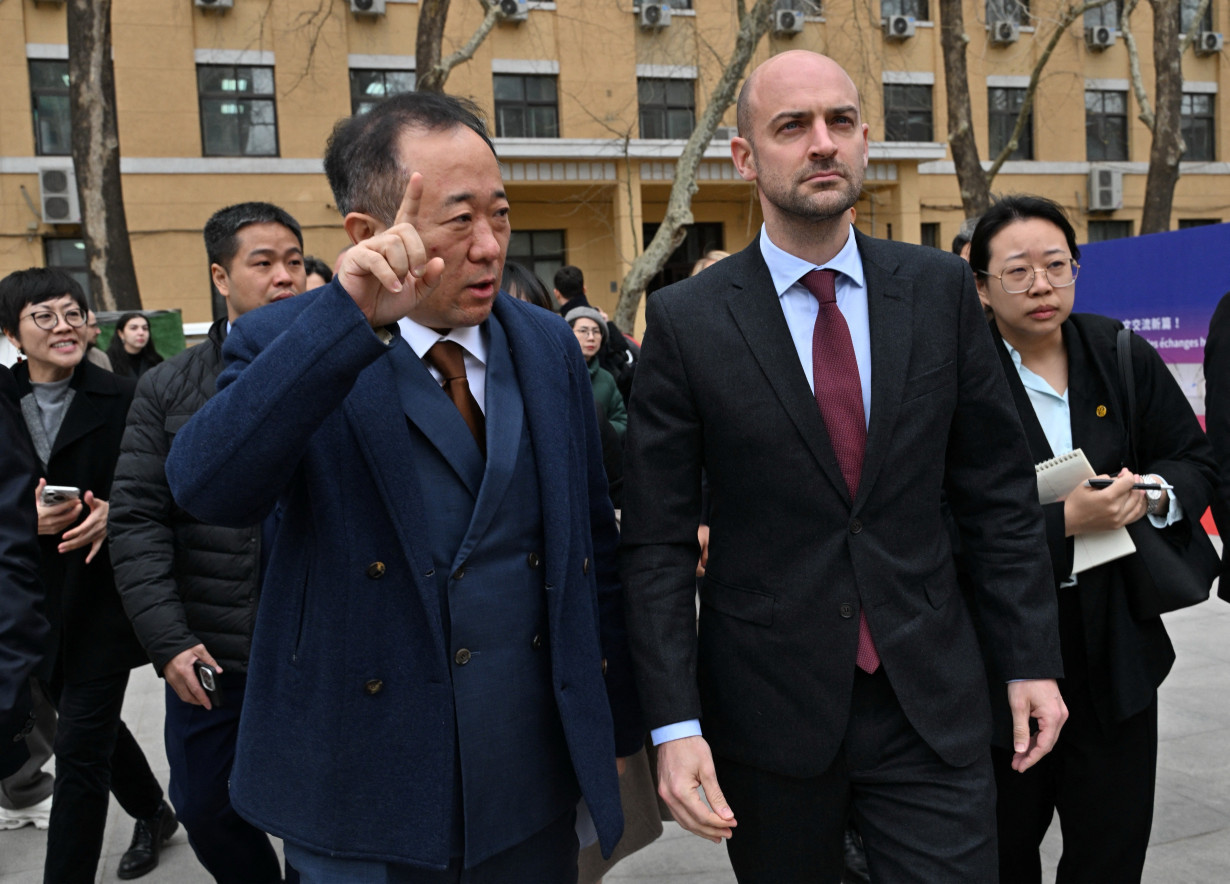
France opposes any form of trade war and advocates dialogue on trade issues, particularly between the European Union and China, Barrot said, while reiterating his country's defence of its cognac industry.
China in October imposed provisional tariffs ranging from 30.6% to 39% on European brandy imports, days after the European Union voted for tariffs on Chinese electric vehicles.
The move affected French cognac brands the most, shrinking the value of their exports by nearly a quarter last year.
"I know that our common goal is to reach a rapid solution to this issue, which would allow us to focus our energies and efforts on building partnerships and investments for the future within the framework of a positive agenda," he said, according to a media pool report.
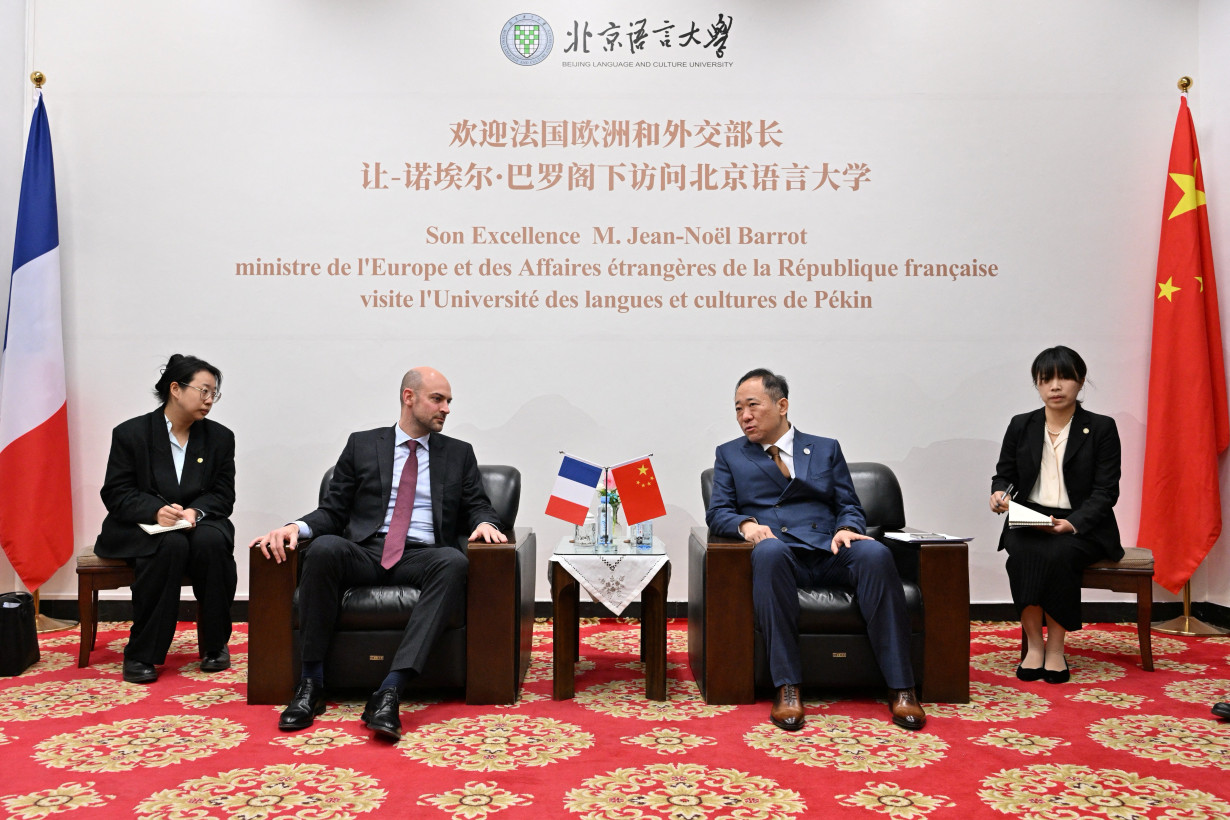
Barrot said France was supportive of the dialogue EU Trade Commissioner Maros Sefcovic was having in Beijing towards this outcome.
On the Ukraine war, Barrot pushed China to play a role in convincing Russia to negotiate with serious and good-faith proposals.
France and China's relations will be "all the more productive and all the stronger" if commercial and security interests were taken into account, he added.
Both ministers also commended their countries' joint efforts towards addressing climate challenges.
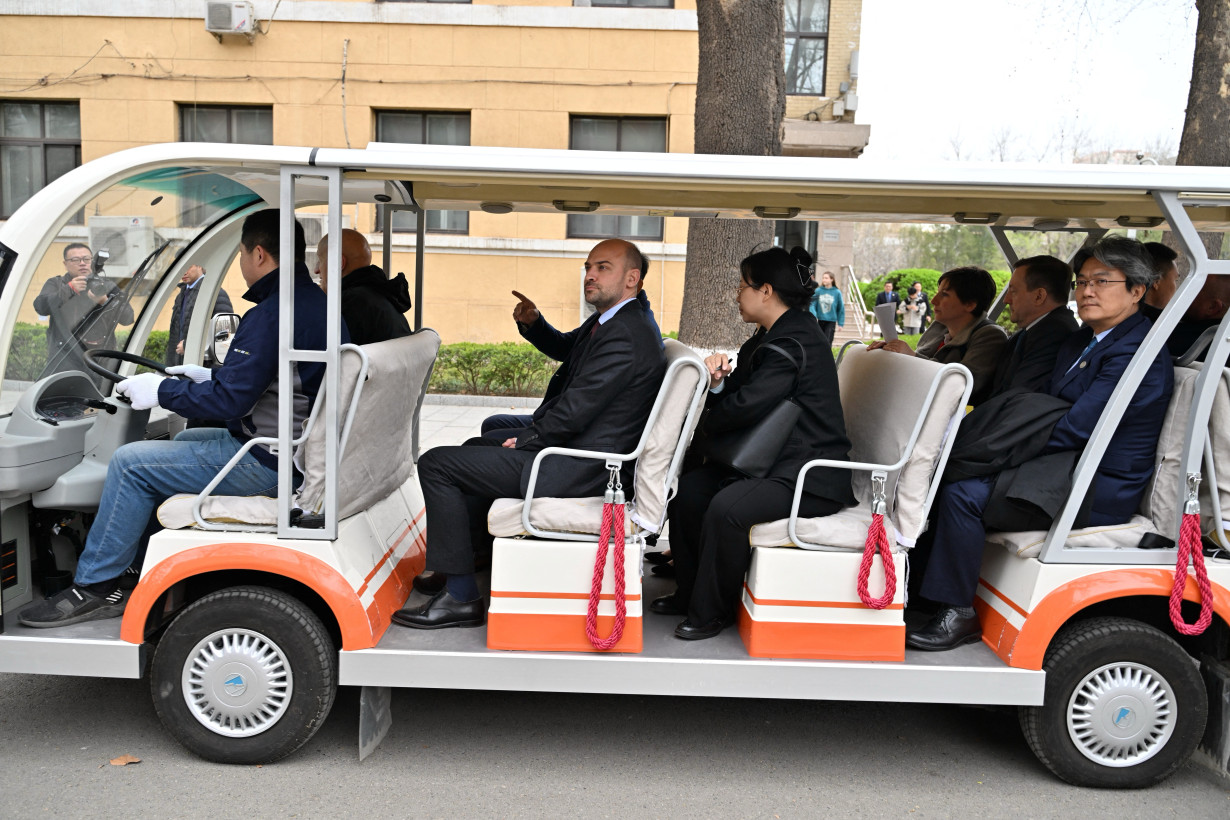
"China is resolute in its commitment to advancing international climate governance and addressing climate challenges," Wang said.
France called on China for high-level participation alongside it towards commitments to the oceans.
(Reporting by Liz Lee and Shi Bu; Editing by Christian Schmollinger, Sharon Singleton and Edmund Klamann)

 Trump has begun another trade war. Here's a timeline of how we got here
Trump has begun another trade war. Here's a timeline of how we got here
 Canada's leader laments lost friendship with US in town that sheltered stranded Americans after 9/11
Canada's leader laments lost friendship with US in town that sheltered stranded Americans after 9/11
 Chinese EV giant BYD's fourth-quarter profit leaps 73%
Chinese EV giant BYD's fourth-quarter profit leaps 73%
 You're an American in another land? Prepare to talk about the why and how of Trump 2.0
You're an American in another land? Prepare to talk about the why and how of Trump 2.0
 Chalk talk: Star power, top teams and No. 5 seeds headline the women's March Madness Sweet 16
Chalk talk: Star power, top teams and No. 5 seeds headline the women's March Madness Sweet 16
 Purdue returns to Sweet 16 with 76-62 win over McNeese in March Madness
Purdue returns to Sweet 16 with 76-62 win over McNeese in March Madness
